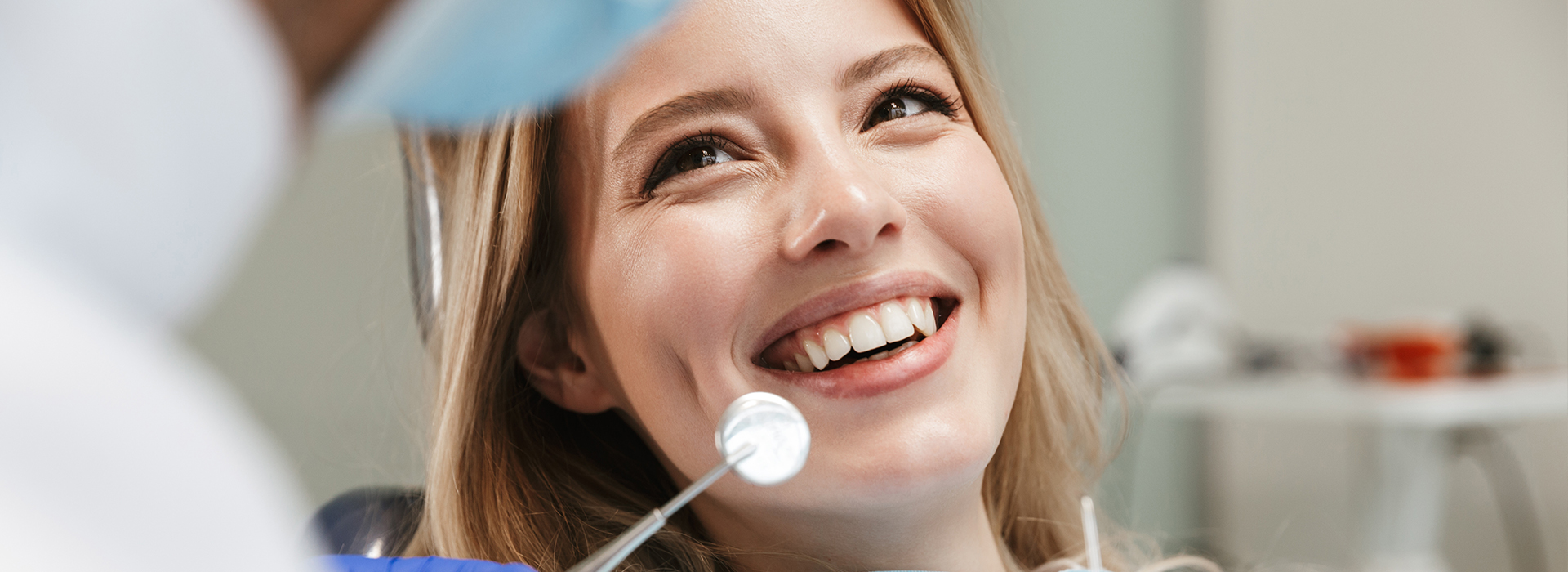Keeping your smile healthy requires more than good daily brushing and flossing. Professional dental cleanings remove plaque and tartar from hard-to-reach areas, let your dental team assess your gum and tooth health, and provide targeted guidance that supports long-term oral wellness. At Cruzin' Dental, our approach to cleanings combines modern tools with practical advice so patients leave the office with a cleaner mouth and a clearer plan for prevention.
Why professional cleanings matter beyond your toothbrush
Daily oral care is essential, but even the most diligent routines can miss tight spaces between teeth, beneath the gumline, or around dental restorations. Plaque that isn’t completely removed hardens into tartar, which bonds to tooth surfaces and can only be removed by a trained hygienist. Left unchecked, these deposits increase the risk of cavities and gum inflammation.
Professional cleanings are also an early detection opportunity. During the appointment, hygienists and dentists can identify early signs of gingivitis, enamel wear, or unusual lesions that warrant closer attention. Catching these issues early keeps treatment simpler, less invasive, and more likely to preserve natural tooth structure.
Beyond mechanical removal of deposits, a cleaning refreshes the microbial balance in the mouth and reduces the inflammatory burden on your tissues. Regular preventive visits support a healthier oral environment that complements your at-home care and helps maintain a confident, comfortable smile.
A step-by-step look at a modern dental cleaning
Most cleanings begin with a careful visual and tactile exam to note areas of concern, followed by removal of plaque and tartar using hand instruments and ultrasonic scalers. Ultrasonic devices use gentle vibrations and water to break up deposits quickly, while hand instruments allow the hygienist to refine and smooth tooth surfaces in sensitive or tight spaces.
After deposits are removed, the hygienist polishes each tooth to remove surface stains and smooth the enamel, which makes it harder for new plaque to adhere. Depending on the patient’s needs, fluoride or protective treatments may be recommended to strengthen enamel and reduce sensitivity after the cleaning.
Throughout the appointment, the team documents periodontal measurements and any changes since the last visit, creating a clear record that guides ongoing care. If additional treatment — such as deeper periodontal therapy or restorative work — is indicated, the dentist will review options and coordinate next steps with the patient.
Appointments are paced to prioritize thoroughness and comfort. Providers often adjust techniques for children, patients with dental anxiety, and those with particular medical histories so every cleaning is both effective and respectful of individual needs.
Comfort, sensitivity, and personalized strategies
Sensitivity during or after a cleaning is common for patients with exposed roots, inflamed gums, or previous restorations. Our team tailors each appointment to minimize discomfort, using gentler instrumentation, shorter cleaning passes, or topical desensitizers when appropriate. Open communication lets your hygienist know if an area is tender so they can adapt in real time.
For patients who experience dental anxiety, the practice offers calming techniques and clear explanations to reduce stress. Simple steps such as scheduled short breaks, relaxation cues, or strategic numbing for specific areas can make a significant difference in the overall experience without compromising the quality of care.
Post-cleaning recommendations are personalized as well. Whether a patient benefits from a change in brushing technique, introduction of interdental brushes, or a different toothpaste for sensitivity, these small adjustments help extend the benefits of a professional cleaning and improve comfort between visits.
How cleanings protect your overall health
Oral health is linked to systemic health. Chronic gum inflammation has been associated with conditions such as diabetes and cardiovascular disease, and maintaining periodontal health can reduce inflammatory stress on the body. Regular cleanings reduce bacterial load and inflammation in the mouth, contributing to overall wellbeing.
Cleanings also provide an opportunity to screen for oral conditions that have wider health implications, including signs of nutritional deficiencies, poorly controlled systemic disease, or oral manifestations of medication side effects. Early identification enables coordination with other healthcare providers when needed.
For patients with risk factors such as smoking, diabetes, or a history of periodontal disease, more frequent cleanings and targeted preventive measures may be recommended. These tailored schedules help manage risk proactively and protect both oral and general health over time.
Daily habits and tools that extend your cleaning's benefits
Between professional visits, the most impactful actions are consistent and effective daily care. Brushing twice a day with a soft-bristled brush and fluoride toothpaste, flossing or using interdental cleaners once daily, and rinsing with a recommended mouthwash all reduce the buildup of plaque and support gum health.
Small technique changes can yield big returns: gentle, short strokes with a 45-degree angle toward the gumline remove plaque effectively without abrading enamel or irritating gums. For patients with tight contacts or fixed appliances, interdental brushes or water flossers are often more effective at cleaning between teeth than floss alone.
Dietary choices also influence how long your cleaning lasts. Limiting frequent snacking on sugary or acidic foods reduces the substrate for harmful bacteria, while staying hydrated and chewing sugar-free gum after meals can stimulate saliva and help neutralize acids. Your hygienist can suggest practical, sustainable adjustments based on your lifestyle and goals.
Regular dental cleanings are a cornerstone of preventive care that protect teeth, support gum health, and contribute to overall wellbeing. If you’d like to learn more about what to expect at your next cleaning or discuss a personalized preventive plan, please contact us for more information.




